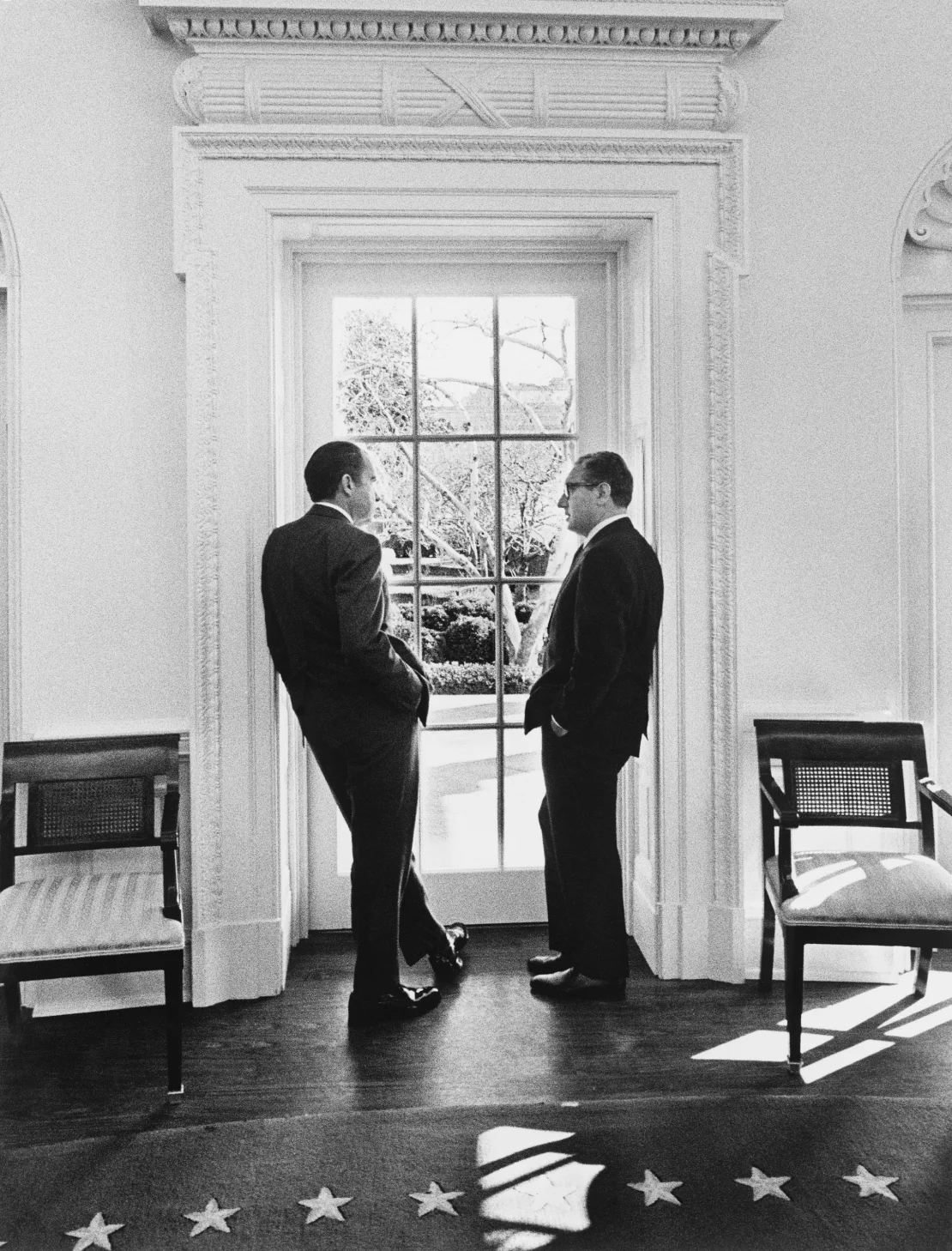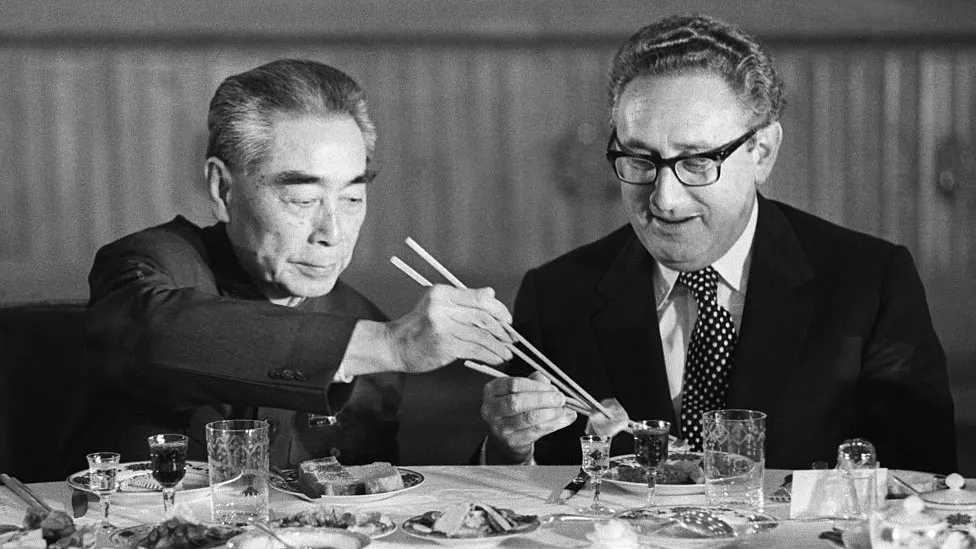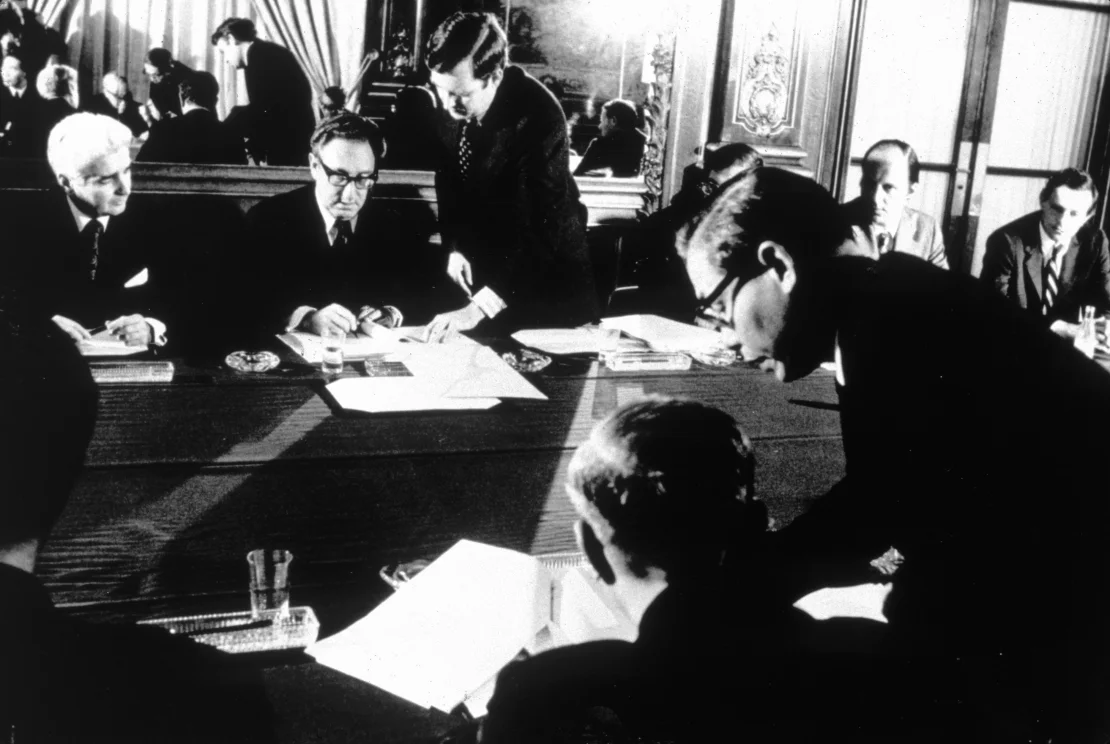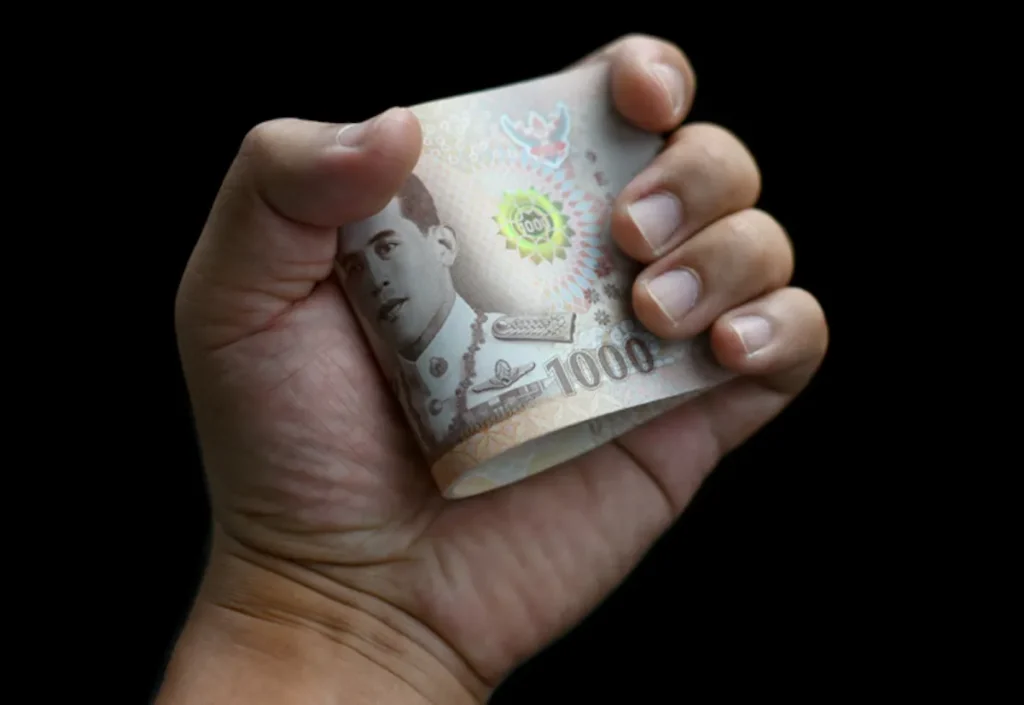Politics
Henry Kissinger, Influential U.S. Diplomat and Nobel Peace Prize Winner, Dies at 100

(CTN News) – Henry Kissinger, a 100-year-old diplomatic giant whose tenures as two presidents’ national security advisor and secretary of state forever altered American foreign policy and garnered him a contentious Nobel Peace Prize, passed away on Wednesday.
A statement from Kissinger Associates Inc., his geopolitical consulting firm, stated that Henry Kissinger passed away at his home in Connecticut. The circumstances were not mentioned.
His burial would take place at a private family ceremony, with a public memorial service in New York City to follow at a later date, according to the announcement.
Even after turning 100 years old, Kissinger kept busy, going to White House meetings, writing a book on leadership styles, and giving testimony to a Senate committee over North Korea’s nuclear danger. He met with Chinese President Xi Jinping during an unexpected trip to Beijing in July 2023.
While serving as national security adviser and secretary of state under Republican President Richard Nixon in the 1970s, he was instrumental in many of the decade’s game-changing global events, which occurred during the Cold War.
The diplomatic opening between the United States and China, the historic weapons control talks between the United States and the Soviet Union, strengthened relations between Israel and its Arab neighbors, and the Paris Peace Accords with North Vietnam were all outcomes of the work of the Jewish immigrant from Germany.
After Nixon resigned in 1974 due to the Watergate crisis, Henry Kissinger’s influence as the principal strategist of American foreign policy began to decline. Nonetheless, he remained a formidable diplomatic force as secretary of state under President Gerald Ford, who succeeded Nixon, and he never shied away from expressing his strong beliefs.
Some saw Kissinger as a war criminal due to his backing of anti-communist dictatorships, particularly in Latin America, while others praised his intelligence and extensive expertise. As he grew older, other countries tried to stop him from traveling by arresting or interrogating him about previous American foreign policy.

His 1973 Peace Prize was one of the most contentious ever; he and North Vietnamese leader Le Duc Tho shared the honor, but Duc Tho later declined. Concerns regarding the covert American bombing of Cambodia led to the resignation of two Nobel committee members who had been involved in the selection process.
Ford referred to Henry Kissinger as a “super secretary of state” and made note of his snark and confidence, traits that detractors would certainly characterize as egotism and paranoia. So even Ford conceded, “Henry in his mind never made a mistake.”
Just before he passed away in 2006, Ford made the statement, “He had the thinnest skin of any public figure I ever knew,” in retrospect.
Henry Kissinger gave off the impression of being both a stuffy academic and a ladies’ man while he was single, squirting starlets around New York and Washington with his gravelly, German-accented voice and glum countenance. The supreme aphrodisiac, according to him, was power.
Kissinger was outspoken on policy but kept his private life under wraps, though he did once tell a journalist that he fancied himself a cowboy hero who rode out into the sunset by himself.
Heinz Alfred Henry Kissinger emigrated to America in 1938, just before the Nazi persecution of Jews in Europe began, after been born on May 27, 1923, in Furth, Germany.
Kissinger changed his given name to Henry after becoming a naturalized American citizen in 1943. He served in the United States Army in Europe during WWII and received a scholarship to attend Harvard University, where he earned a master’s and a doctorate in 1952 and 1954, respectively. His subsequent seventeen years were spent teaching at Harvard.

In 1967, for example, Henry Kissinger mediated between the Vietnamese people and the State Department, one of many government departments for which he worked as a consultant throughout that time. He relayed intelligence regarding peace talks to Nixon’s camp through his links with the Johnson administration.
Nixon appointed Kissinger to the position of national security adviser after his campaign promise to terminate the Vietnam War contributed to his 1968 presidential victory.
Over the course of the brutal “Vietnamization” process, which involved transferring the war’s burden from the 500,000-troop U.S. forces to the South Vietnamese, the United States dropped a flurry of bombs on North Vietnam, mined its harbors, and bombed Cambodia.
The Paris Peace Accords, which were concluded in January 1973, were merely a precursor to the ultimate Communist conquest of the South two years later, notwithstanding Kissinger’s 1972 declaration that “peace is at hand” in Vietnam.
With his appointment as secretary of state in 1973, Henry Kissinger gained unchecked power in international affairs and continued to serve as national security adviser.
As hostilities between Israel and the Arab world escalated, Kissinger embarked on his first “shuttle” expedition, an example of the intensely personal and high-pressure diplomacy that would later make him renowned.
Kissinger was able to help establish a permanent disengagement deal between Syria and Israel in the Golan Heights, which are currently under Israeli occupation, during his thirty-two days spent traveling between Damascus and Jerusalem.
Two journeys were undertaken by Kissinger to China, including a clandestine one to meet with Premier Zhou Enlai, as part of his effort to reduce Soviet influence by reaching out to China, its primary communist adversary. As a consequence, Nixon and Chairman Mao Zedong had their historic summit in Beijing, and the two nations’ relations were formally formalized.
In an interview with Reuters, Winston Lord—a former U.S. ambassador to China and Kissinger’s special assistant—praised his former employer, calling him a “tireless advocate for peace,” and said, “America has lost a towering champion for the national interest.”
As secretary of state when Gerald Ford assumed office in the summer of 1974, Kissinger was unaffected by the Watergate controversy that led to Nixon’s resignation. He was not involved in the cover-up. However, in an attempt to include different perspectives on foreign policy, Ford did succeed him as national security adviser.
In the latter half of that year, Kissinger accompanied Ford to Soviet Vladivostok, where the president met with Soviet leader Leonid Brezhnev and reached an agreement on the fundamentals of a strategic disarmament agreement. The accord was the culmination of Kissinger’s groundbreaking detente efforts, which lowered tensions between the United States and the Soviet Union.
To be sure, Henry Kissinger could only go so far in his diplomatic efforts. His failure to secure a second phase of disengagement from the Sinai by Egypt and Israel in 1975 was a point of criticism.

Also, Nixon and Kissinger took a lot of heat for seemingly favoring Pakistan during the 1971 India-Pakistan War. A comment that Kissinger subsequently admitted he regretted was his use of the insult “bastards” to describe the Indians.
Similar to Nixon, he was concerned about the propagation of left-wing ideologies throughout the Western Hemisphere. As a result of his activities, many Latin Americans developed a profound mistrust of Washington for many years.
In 1970, he conspired with the CIA to destabilize and depose Salvador Allende, the democratically elected Marxist president of Chile, while in a 1976 document following Argentina’s brutal coup, he advocated for the encouragement of military rulers.
In 1976, when Ford was defeated by Democratic candidate Jimmy Carter, Henry Kissinger’s tenure in the executive suites of government authority was essentially finished. Ronald Reagan, the incoming Republican president, severed ties with Henry Kissinger because, in Reagan’s view, the latter was too liberal for his conservative base.
Following his departure from government service, Kissinger established a New York-based, ultra-powerful consulting firm that catered to the global business elite. He became a frequent television commentator on global issues, wrote books, and sat on company boards as well as other forums devoted to security and foreign policy.
In the wake of the events of September 11, 2001, President George W. Bush appointed Henry Kissinger to lead an inquiry group. Henry Kissinger was compelled to resign from his position due to the outrage from Democrats who perceived a conflict of interest with several clients of his consulting firm.
After getting a divorce from Ann Fleischer in 1964, he wed Nancy Maginnes, who had been an advisor to Nelson Rockefeller, the governor of New York, in 1974. His first wife bore him two children.

Politics
U.N. Special Rapporteur Calls on Thailand’s Banks to Cut-Off Myanmar Junta

The U.N special rapporteur for human rights in Myanmar has said the Bank of Thailand, commercial banks, and the anti-money laundering office are working on measures to stop the Myanmar Junta from acquiring weapons through Thailand’s banking system.
Tom Andrews the U.N. special rapporteur for human rights in Myanmar, said that some banks commercial in Thailand had aided Myanmar Junta’s by facilitating transactions that supplied military equipment to the Junta through the international banking system.
He called on the Bank of Thailand and financial institutions to do more to stop Myanmar’s junta acquiring weapons which they use on civilians to maintain power.
The special rapporteur was in Bangkok to address a parliamentary committee on security, he called on the Thai government to stop financial transactions that help supply weapons to Myanmar’s junta in line with a plan promoted by the Association of Southeast Asian Nations (ASEAN) that sets out an end to violence as a first step toward peace.
In his 2023 report “The Billion Dollar Death Trade,” Andrews noted that Singapore had implemented a clear policy opposing the transfer of weapons to Myanmar.

Thai Baht – File Image
Thailand’s Banks Lacked Clear Policy
As a result, exports of weapons and related materials from Singapore-registered entities using the formal banking system dropped from almost U.S. $120 million in fiscal year 2022 to just over $10 million over the next 12 months.
However, he said Thailand had no explicit policy position opposing weapons transfer to the Myanmar Junta, which saw exports from Thai-registered entities more than double in 2023, from just over $60 million to nearly $130 million.
He called on Thai Government to conduct a thorough investigation into transfers as Singapore had done into its companies’ dealings.
Andrews told the the committee that five Thai commercial banks and Thai-based companies were assisting Myanmar’s junta obtain weapons, dual-technology items and jet fuel, enabling Military Junta to conduct atrocities against the people.
But said he had found no evidence that the Thai government was involved or was aware of the transactions or that Thai commercial banks had knowledge.

Photo courtesy of The Nation
Banks Condemn Myanmar Junta Violence
Meanwhile representatives from Thailand’s central bank, anti-money laundering office and the commercial banks named in the report were also present at the parliamentary meeting at government house in Bangkok.
A representative of the Bank of Thailand said officials were working with the commercial banks and the anti-money laundering office to make sure that enhanced oversight was properly practiced.
The Thai Bankers Association that was also at the parliamentary meeting said it did not have the means to investigate and monitor such irregularities beyond Thailand’s borders.
Mr. Pongsit Chaichatpornsuk, a Thai Bankers Association representative told the committee that If government security agencies tell us, we will stop transactions. We don’t support arms procurement by Myanmar Junta or any military government to violate human rights.
Thailand, which shares a long border with Myanmar and hosts many thousands of refugees fleeing conflict there, has tried to promote dialogue between Myanmar’s military rulers and opposition forces but no progress has been made.
This Article was first published in RFA
Politics
People Rushing Sign Online Petition to Impeach South Korea’s President Crash Site

The Speaker of the National Assembly of South Korea said in a statement that an online petition calling for South Korea’s President Mr. Yoon Suk-yeol’s impeachment crashed due to the enormous number of individuals attempting to sign the petition. Saying the National Assembly would resolve the matter as quickly as possible.
Since the petition was launch on the National Assembly’s website on June 20, more than 811,000 people have signed it. The petition urges Parliament to introduce legislation to impeach President Yoon on the grounds that he is unfit for office.
Late on June 30, National Assembly Speaker Mr. Woo Won-shik issued an apology for the disturbance and stated that Parliament would take action to protect the public’s fundamental rights.
People attempting to access the petition on July 1 experienced delays of up to four hours. At one point, an error message indicated that more than 30,000 individuals were waiting to access the site.
South Korea’s Parliament Hesitant
The online petition accuses Yoon of corruption, escalating the risk of conflict with North Korea, and endangering South Koreans’ health by failing to prevent Japan from leaking treated radioactive water from the destroyed Fukushima nuclear power plant.
By law, Parliament must assign every petition signed by more than 50,000 people to a committee, which will then decide whether to put it to a vote in the assembly.
However, the opposition Democratic Party, which has a majority in Parliament, is hesitant to turn the petition into an impeachment bill, according to media reports, with a spokesperson stating that the party has yet to address the topic.
The Parliament can impeach a president with a two-thirds majority. The Constitutional Court then deliberates the motion and decides whether to remove or reinstall the president.
Meanwhile, on Monday Reuters reported North Korea criticized a joint military exercise performed this month by South Korea, Japan, and the United States, according to official media, saying such drills demonstrate the three nations’ alliance has evolved into “the Asian version of NATO”.
On Thursday, the three countries began large-scale combined military drills named “Freedom Edge” featuring navy destroyers, fighter fighters, and the nuclear-powered US aircraft carrier Theodore Roosevelt, with the goal of strengthening defenses against missiles, submarines, and air strikes.
The drill was designed at a three-way meeting at Camp David last year to boost military cooperation amid concerns on the Korean peninsula caused by North Korea’s weapons testing.
Pyongyang will not overlook the strengthening of a military bloc led by the United States and its allies, and it would respond aggressively and decisively to defend regional peace, according to North Korea’s foreign ministry, as reported by KCNA.
Politics
Joe Biden Assures Donors He Can Still Win Presidential Election Despite Debate Concerns

(CTN News) – US President Joe Biden has convinced Democratic donors that he can still defeat Donald Trump in the November presidential election, following a dismal debate performance that raised concerns about his prospects.
On Saturday, the 81-year-old president attended a series of fundraising events in New York and New Jersey, defending his performance in CNN’s Presidential Debate.
On Thursday, Joe Biden conceded, “I didn’t have a great night, but neither did Trump” at one event.
“I promise you we’re going to win this election,” the politician declared.
Joe Biden’s debate performance was marked by difficult-to-follow and wobbly responses, generating further concerns among some Democrats about whether he is the ideal candidate to run in this high-stakes race.
Former Democratic House Speaker Nancy Pelosi said Joe Biden’s debate performance “wasn’t great,” while his former communications director, Kate Bedingfield, termed it “very disappointing.”
The president acknowledged the worry but committed to fighting harder.
New Jersey’s Democratic governor, Phil Murphy, attended the fundraiser alongside Mr. Biden and the First Lady, telling Mr. Biden, “We are all with you 1,000 percent.”
The Joe Biden team acknowledged that the debate did not go as planned but maintained he would not step aside for another nominee.
On Saturday, campaign chairwoman Jennifer O’Malley Dillon stated that internal post-debate polling revealed that “voters’ opinions were not changed”.
“It will not be the first time that overblown media narratives have driven temporary dips in the polls,” she told reporters.
Former President Barack Obama, a friend of Mr. Biden, admitted on social media that “bad debate nights happen”.
“This election is still a choice between someone who fought for ordinary folks his entire life and someone who only cares about himself,” said Mr. Obama.
Hours later, Mr Trump told his supporters that he saw the discussion as a “big victory” for his campaign.
“Joe Biden’s problem is not his age,” Trump, 78, added. “It is his competence. He’s quite incompetent.

Politicians were not the only ones who criticized Mr Biden’s performance.
A prominent editorial in the New York Times condemned his decision to run again as a “reckless gamble” and advised him to conduct some soul-searching this weekend.
It urged Democrats to “acknowledge that Joe Biden can’t continue his race and create a process to select someone more capable to stand in his place” .
Voters in the US have expressed misgivings about voting for any candidate after Thursday’s debate.
Lori Gregory, a long-time Democrat, told the BBC she “could not handle” watching the discussion, asking, “Is this the best our country can do?”
Republican Crystal Myers-Barber said it was “painful to watch,” but she also thought “Trump came across very level-headed and presidential, and Biden came across very weak.”
Democrat Shana Ziolko said she was “frustrated” by the debate and believed there was no obvious winner.
A post-debate poll conducted by liberal pollster Data for Progress revealed that 62% of potential voters who saw or read about the debate believed Trump won. Only 30% of those polled believed Mr Biden had won the debate.
Until more polling is done, fundraising could be another indicator of Joe Biden’s sustained popularity.
In a memo, chairwoman Jennifer O’Malley Dillon stated that the campaign had raised more than $27 million (£21.3 million) between the Thursday debate and Friday evening.
“After Thursday night’s debate, the Beltway class is counting Joe Biden out. “The data in battleground states, however, tells a different story,” she explained.
“This election was incredibly close before Thursday, and by every metric we’ve seen since, it remains just as close” , she commented.
Source: BBC
-

 News4 years ago
News4 years agoLet’s Know About Ultra High Net Worth Individual
-
Entertainment2 years ago
Mabelle Prior: The Voice of Hope, Resilience, and Diversity Inspiring Generations
-
News11 years ago
Enviromental Groups Tell Mekong Leaders Lao Dam Evaluation Process Flawed
-

 Health4 years ago
Health4 years agoHow Much Ivermectin Should You Take?
-

 Tech3 years ago
Tech3 years agoTop Forex Brokers of 2023: Reviews and Analysis for Successful Trading
-

 Lifestyles3 years ago
Lifestyles3 years agoAries Soulmate Signs
-

 Entertainment3 years ago
Entertainment3 years agoWhat Should I Do If Disney Plus Keeps Logging Me Out of TV?
-

 Health3 years ago
Health3 years agoCan I Buy Ivermectin Without A Prescription in the USA?